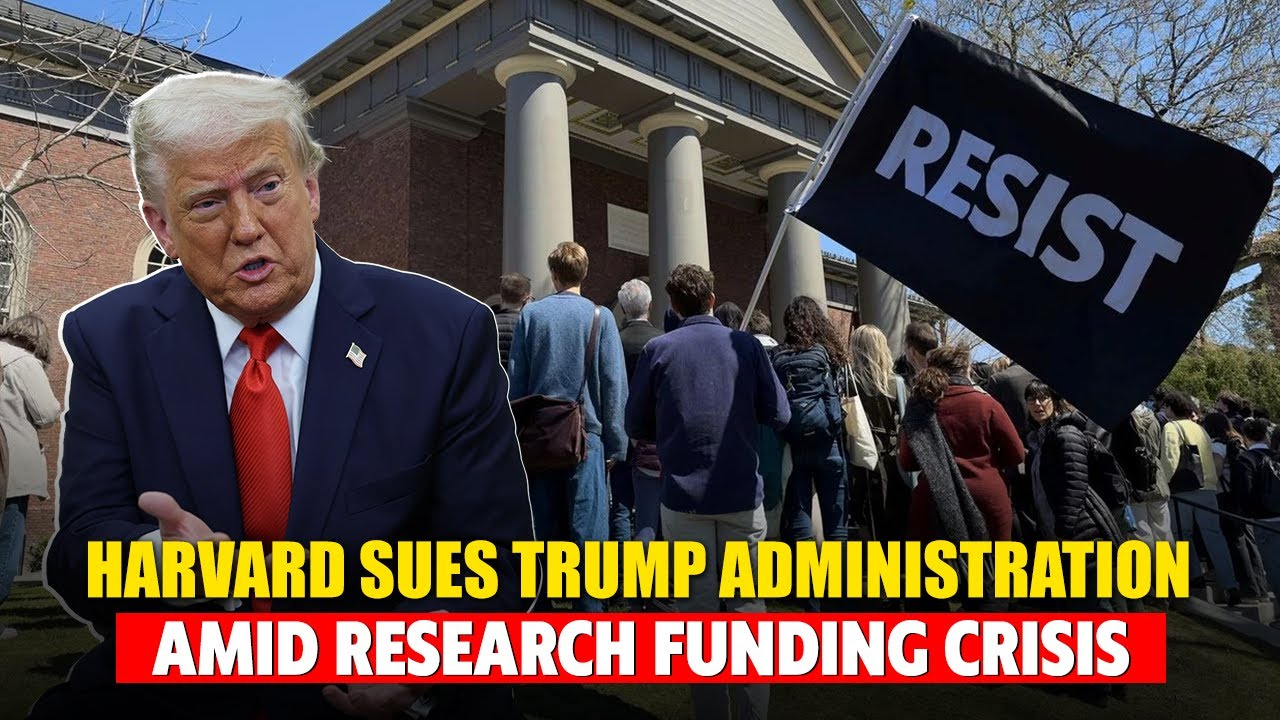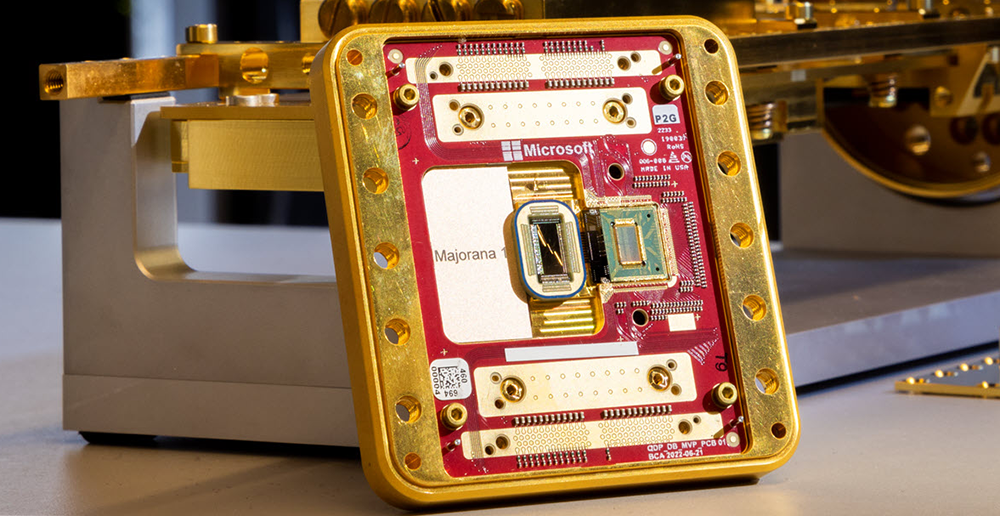The Harvard research funding crisis is reshaping the landscape of innovation and scientific progress, particularly at the Wyss Institute led by Don Ingber. Recent government actions have halted vital projects worth millions that rely on organ-on-a-chip technology, affecting countless researchers and their groundbreaking work. As the stop-work order threatens ongoing studies exploring radiation damage and microgravity effects, the future of American innovation hangs in the balance. With approximately $2.2 billion in federal funding frozen, the urgency to secure alternative funding and maintain project viability has never been more critical. Stakeholders are now scrambling to navigate the tumultuous waters of research funding while. POinting to a clearer picture of the challenges that lie ahead.
The current turmoil involving financial support for research at Harvard highlights a critical juncture for scientific endeavors in the United States. This crisis has triggered significant anxiety among researchers as they grapple with halted projects and the immediate challenges brought about by funding uncertainties. As notable figures like Don Ingber of the Wyss Institute express concern over the impact of these disruptions, it’s evident that the implications extend far beyond the walls of academia. The intricate relationship between government funding and research innovation is under strain, leading to fears that the collaborative environment that has historically driven advancements in technologies—such as organ-on-a-chip innovation—may falter. As American institutions face these hurdles, the quest to maintain a robust research ecosystem grows increasingly imperative.
The Immediate Impact of the Harvard Research Funding Crisis
The Harvard Research Funding Crisis has led to a flurry of activity among researchers and administrative staff at the Wyss Institute. Following the abrupt stop-work order issued by the Trump administration, Don Ingber, the founding director, found himself in a precarious position. Projects that had previously promised substantial advancements in medical research were suddenly halted, leaving researchers scrambling to assess the damage. This situation highlighted the fragility of academic research financing, as Ingber and his team worked diligently to minimize the impact on their work and personnel.
With over $2.2 billion in federal research funding suspended, the implications of this crisis extend beyond just financial concerns; they touch on the very core of scientific progress and innovation. Ingber emphasized the necessity of quick action to safeguard the projects that utilize organ-on-a-chip technology, a significant breakthrough being applied to various fields, including healthcare and space exploration. The urgent need to redirect talent and technical resources amid funding uncertainty reflects the broader vulnerabilities within the scientific community that must be addressed to maintain America’s position in global innovation.
Organ-on-a-Chip Technology: A Lifeline in Crisis
Organ-on-a-chip technology represents a revolutionary advancement in biomedical research, offering innovative solutions to study complex biological processes in vitro. The Wyss Institute has been at the forefront of this research, focusing on applications such as simulating the human body’s response to radiation exposure. As Don Ingber articulated, this technology not only allows for precise modeling of tissue damage but also paves the way for developing new medications that could address critical health issues. This method holds immense potential for understanding the effects of both environmental and medical challenges on human health.
As projects employing organ-on-a-chip technology faced immediate suspension due to funding issues, researchers expressed concerns over the loss of momentum in their critical studies. The ability to replicate human physiological responses in a controlled environment is essential for effectively addressing challenges faced by astronauts exposed to microgravity and radiation during space missions. The likelihood that such projects may not resume hinges on resolving the current funding crisis, making it imperative that stakeholders advocate for the reinstatement of research financing to ensure continued breakthroughs in American innovation.
Navigating Uncertainty: Protecting Talents Amid Funding Freeze
In the face of the Harvard research funding crisis, efforts to protect talented researchers have taken priority. Don Ingber emphasized the importance of supporting his team amidst financial instability, as many faced uncertainty about their futures in the U.S. research landscape. The ongoing crisis has prompted difficult decisions, including reallocating resources and helping individuals secure positions elsewhere, illustrating the deep interconnections between personnel stability and research progression.
Moreover, the current climate has made it increasingly challenging to attract international talents to institutions like the Wyss Institute in Boston. With fears over immigration policies and job stability dominating discussions, potential candidates have begun to withdraw from accepted positions, posing long-term threats to the scientific community. The shift in perception regarding the safety and viability of a career in American science can have lasting implications on the innovation landscape, underscoring the crucial need for responsive policies that nurture and protect the research workforce.
The Role of Government and Academia in American Innovation
The tension between government directives and academic independence poses significant challenges to the American innovation system. Research institutions like Harvard are pivotal in fostering an environment where groundbreaking ideas can flourish. However, recent actions from the Trump administration, including the abrupt freeze of research funds, have raised alarms about the future of this collaborative dynamic. Don Ingber has articulated the essential nature of the relationship between government and academia, which historically has been the backbone of technological innovation in the U.S.
The current crisis could jeopardize the progress made in various fields, including biomedical research powered by organ-on-a-chip technology. As Ingber stresses, a sustained partnership is crucial for advancing the sciences that drive technology development. Without this partnership, America runs the risk of stagnating in its innovation capacity, losing its edge in critical areas that shape everyday life, from healthcare to environmental science, and moving further away from its ideals of progress and excellence in research.
Urgent Measures to Sustain Research Amidst Legal Challenges
As Harvard engages in a lawsuit to challenge the government’s stop-work order, the urgent need for strategic measures to sustain research becomes even more pressing. Researchers like Don Ingber are navigating a turbulent landscape where ongoing projects that leverage innovative technologies such as organ-on-a-chip are caught in a legal limbo. The unpredictability of legal outcomes necessitates that academic leaders take proactive steps to reallocate resources and find alternative funding sources.
Ingber’s approach has been to prioritize human capital, ensuring that team members are not left in limbo while projects halt. This proactive strategy reflects an understanding of the integral role that talented individuals play in research innovation—where human intellect and creativity are irreplaceable. As the lawsuits unfold, the research community is watching closely, hoping for a resolution that will restore funding, thereby allowing them to continue leading America’s innovation efforts.
The Global Implications of Domestic Research Funding Cuts
The ramifications of the Harvard research funding crisis extend well beyond university walls, affecting the global landscape of scientific research and innovation. As the U.S. historically attracts some of the brightest minds from around the world, current instability in research funding threatens to deter future international talent from pursuing opportunities within American institutions. Don Ingber highlights the fears shared by prospective postdoctoral researchers about the perceived risks of immigrating to the U.S. in the wake of tightened immigration policies and funding uncertainties.
Furthermore, the departure of talented researchers to countries with more stable research funding environments could diminish America’s leadership in scientific advancements. As innovation increasingly relies on international collaboration, retaining top-tier researchers becomes essential. The ongoing discussions surrounding research funding cuts serve as a pivotal moment for the U.S. to reevaluate its commitment to maintaining a robust academic framework that encourages global participation and contributions.
Advocating for Restoration: The Future of American Science
In light of the significant challenges presented by the current research funding crisis, advocacy for the restoration of support is paramount. Don Ingber’s efforts to reach out to the media and draft opinion pieces underscore the critical need to communicate the value of academic research to the broader public and stakeholders. Restoring funding is essential not just for the immediate survival of impactful projects but for the long-term vitality of America’s innovation ecosystem.
The ongoing struggle emphasizes the need for a renewed understanding of how crucial the partnership between governmental bodies and academia is to fostering and advancing science. Ingber asserts that for the country to maintain its edge in technological developments, systematic support for research must return to the forefront of policy discussions. Only through a collective recognition of the power of scientific inquiry can the U.S. emerge from this crisis, reaffirming its commitment to catalyzing innovation that impacts everyday lives.
Long-term Strategies for a Sustainable Research Environment
The immediate responses to the Harvard research funding crisis reveal the need for long-term strategies that can foster stability within the academic research environment. According to Don Ingber, developing mechanisms for diversified funding sources — such as partnerships with the private sector and philanthropic organizations — could buffer against the vulnerabilities associated with governmental funding cuts. Creating a more resilient research ecosystem would not only help mitigate the impacts of political changes but also enhance the capacity for ongoing scientific innovation.
Furthermore, investing in educational outreach and international collaborations can bolster the talent pipeline crucial for driving research excellence. By fostering relationships with institutions and researchers worldwide, American universities can create a more integrated global research environment that attracts top talent. Ingber’s insights emphasize that embedding sustainability into the fabric of research initiatives is essential to ensure that future generations of scientists are supported and equipped to tackle pressing global challenges.
Lessons from the Crisis: A Call for Innovation in Funding Structures
The Harvard research funding crisis serves as a wake-up call about the vulnerabilities inherent within the current research funding strategies. The abrupt halt demanded by the Trump administration highlighted the fragility of exclusive reliance on government funding. In light of this experience, a reimagining of funding structures is necessary to safeguard academic research from political whims and economic downturns. Developing innovative funding models, which include collaborations between academic institutions, industry stakeholders, and governmental entities, will lead to a more balanced and resilient funding landscape.
Moreover, it is essential to advocate for policies that provide consistent funding to support key research initiatives, especially those focused on advancing technologies such as organ-on-a-chip applications. This technology has the potential to revolutionize numerous fields, making it imperative that policy frameworks evolve to reflect the importance of sustained investment. The ongoing dialogue surrounding research funding not only impacts current scientists but sets the stage for the next generation, ensuring that America remains a leader in innovation and scientific discovery.
Frequently Asked Questions
What is the Harvard research funding crisis and how does it affect organ-on-a-chip technology?
The Harvard research funding crisis refers to the significant freeze on approximately $2.2 billion in research funding to the University, which directly impacts projects like the organ-on-a-chip technology at the Wyss Institute. This situation arose after Harvard resisted government demands, leading to stop-work orders that halted critical projects, including those involving advancements in organ-on-a-chip technology spearheaded by Don Ingber.
How has Don Ingber addressed the Harvard research funding crisis at the Wyss Institute?
Don Ingber, the founding director of the Wyss Institute, has been proactive in managing the Harvard research funding crisis. Following the stop-work order, he prioritized reallocation of researchers to other projects and sought internal funding to support ongoing work, emphasizing the importance of maintaining talent and continuity in biotechnology research and development during this turbulent time.
What role does organ-on-a-chip technology play in American innovation amidst the funding crisis at Harvard?
Organ-on-a-chip technology is critical for advancing American innovation in healthcare and environmental safety, especially highlighted during the Harvard research funding crisis. These technologies are designed to model biological processes and study radiation effects, providing foundational insights that drive various sectors including aerospace and pharmaceuticals, even as funding uncertainties loom.
How has the funding crisis impacted postdoctoral researchers at Harvard’s Wyss Institute?
The Harvard research funding crisis has created significant uncertainty for postdoctoral researchers at the Wyss Institute. Many researchers are facing potential layoffs or project closures due to funding constraints, leading to anxiety as they consider their future careers, prompting some to seek opportunities outside the U.S. in response to the instability.
What are the broader implications of the Harvard research funding crisis on scientific research in America?
The Harvard research funding crisis has concerning implications for scientific research across America. With a halt on significant funding resources, it threatens the innovation engine that has historically driven technological advancements. If leading institutions like Harvard cannot secure research funding, the entire fabric of American innovation—including ongoing projects in organ-on-a-chip technology—may face serious challenges.
Why is organ-on-a-chip technology vital for future research despite the Harvard research funding crisis?
Despite the Harvard research funding crisis, organ-on-a-chip technology remains vital as it offers innovative ways to study complex biological responses and to develop new treatments. The technology’s applications, which include modeling human responses to radiation and simulating conditions for astronauts in space, highlight its importance for future medical and aerospace research, making it essential even amidst financial hardships.
What are the expected outcomes of Harvard’s lawsuit related to the research funding crisis?
The expected outcomes of Harvard’s lawsuit regarding the research funding crisis include an attempt to restore the funding that was frozen due to government demands. The lawsuit aims to challenge what Harvard characterizes as unconstitutional overreach, potentially impacting the future of research at the University and initiatives like Don Ingber’s organ-on-a-chip projects.
How can the Harvard research funding crisis affect future talent acquisition in scientific fields?
The Harvard research funding crisis could deter future talent acquisition in scientific fields as stability is a key factor for researchers considering career opportunities. The uncertainty surrounding funding may lead potential candidates, particularly international scientists, to avoid positions at institutions like Harvard, thereby limiting America’s ability to attract innovative talent critical for advancements in areas such as organ-on-a-chip technology.
| Key Point | Details |
|---|---|
| Stop-Work Order | Harvard researchers, including Don Ingber, received a stop-work order after Harvard’s rebuff of Trump administration demands, affecting projects worth $19 million. |
| Funding Freeze | The federal government froze approximately $2.2 billion in research funding to Harvard due to governance demands from the administration. |
| Legal Action | Harvard filed a lawsuit against the administration, seeking to restore funding and challenging the legality of the demands made on the university. |
| Impact on Researchers | The halt of projects has led to uncertainty, with researchers and staff scrambling to secure positions and project continuity. |
| Importance of Research | The organ-on-a-chip technology is crucial for studying radiation damage and its implications for human health in nuclear scenarios. |
| Future Implications | Concerns about the future of human space travel due to high radiation exposure and the uncertain political climate affecting research careers. |
Summary
The Harvard research funding crisis has created significant disruption and uncertainty within the university’s research community. Following a stop-work order that targeted critical projects, researchers are grappling with the implications of halted funding and the potential long-term impact on innovative research and talent retention. With ongoing legal battles and federal funding freezes, the future of vital scientific endeavors hangs in the balance, jeopardizing America’s position as a leader in research and technology.



